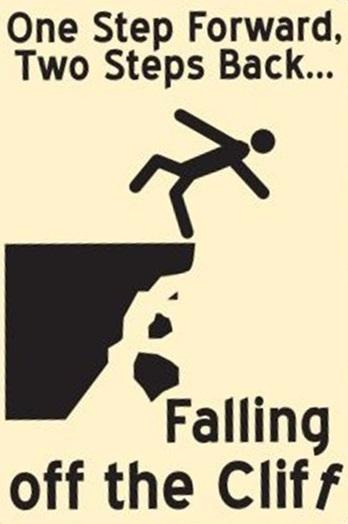 The Cliff Effect is when Social Assistance programs remove benefits faster than people can earn enough to replace them. If a person, especially a single parent starts working full time hours but at not at living wage levels, with no employer drug benefits, market rent may kick in, child care subsidies may decrease due to increased income and the increased cost of transportation to get to work – you can see how the cliff effect starts to become a reality.
The Cliff Effect is when Social Assistance programs remove benefits faster than people can earn enough to replace them. If a person, especially a single parent starts working full time hours but at not at living wage levels, with no employer drug benefits, market rent may kick in, child care subsidies may decrease due to increased income and the increased cost of transportation to get to work – you can see how the cliff effect starts to become a reality.
Sometimes the hard road to stability and sustainability is very difficult, a person may feel like they are taking steps forward and backward at the same time.
People leaving Social Assistance can be a risk during this time of “giving up”, feeling overwhelmed and returning to a dependable income safety net that keep people in poverty.
Additional problem solving supports and resources are crucial during these transitional times for people leaving poverty – judgements need to be set aside.

